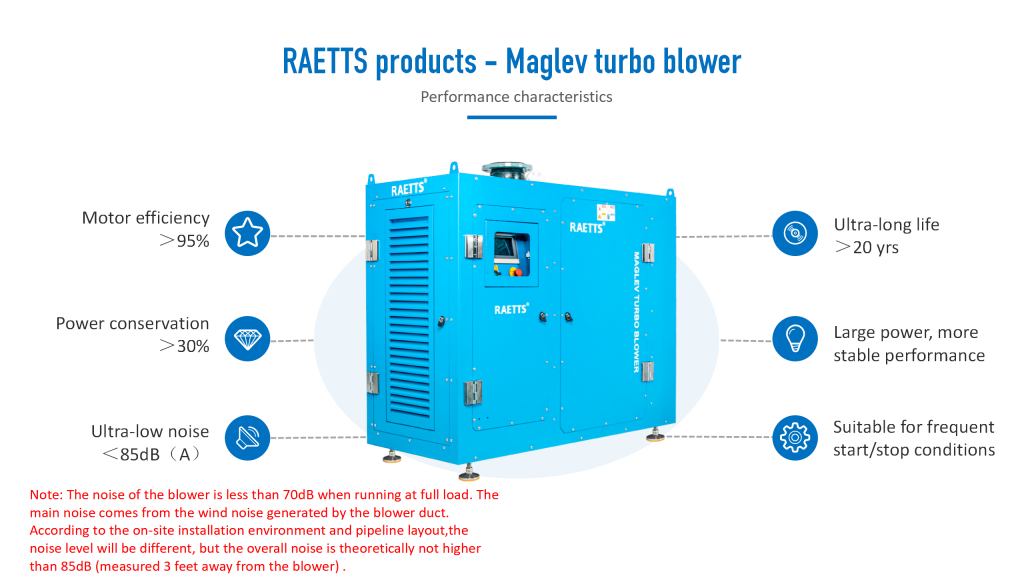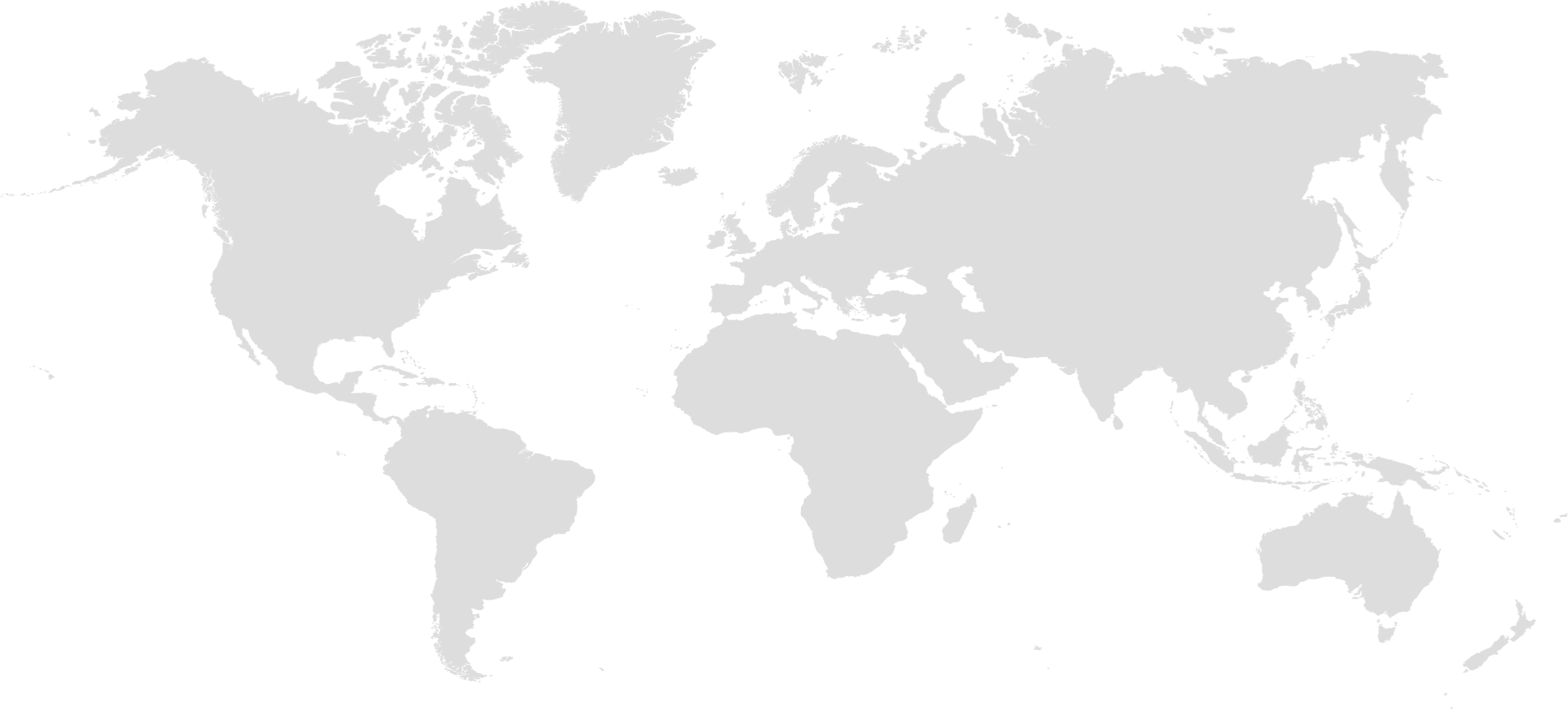Maglev Centrifugal Chiller Price Influencing Factors: Insights from RAETTS
As a leading turbo blower manufacturer, RAETTS is dedicated to providing advanced cooling solutions that leverage cutting-edge technology, including maglev centrifugal chillers. These innovative systems offer superior efficiency, reliability, and environmental benefits, making them a preferred choice for various industrial and commercial applications. However, understanding the factors that influence the price of maglev centrifugal chillers is essential for making informed purchasing decisions. In this article, we explore the key elements that impact the pricing of these advanced chillers.
Understanding Maglev Centrifugal Chillers
What is a Maglev Centrifugal Chiller?
Maglev centrifugal chillers use magnetic levitation (maglev) technology to suspend the chiller’s compressor shaft, eliminating the need for traditional mechanical bearings. This frictionless operation significantly reduces energy consumption, wear and tear, and maintenance requirements, resulting in a highly efficient and reliable cooling solution. RAETTS’s maglev centrifugal chillers are designed to provide exceptional performance with minimal environmental impact, making them ideal for large-scale HVAC systems.
Benefits of Maglev Technology
Maglev technology offers numerous advantages over conventional chiller systems, including:
- Energy Efficiency: Reduced friction leads to lower energy consumption, making maglev chillers more cost-effective over time.
- Quiet Operation: The absence of mechanical contact results in quieter operation, enhancing the comfort of the environment.
- Longevity: With fewer moving parts, maglev chillers have a longer lifespan and require less frequent maintenance.
- Environmental Impact: Maglev chillers use environmentally friendly refrigerants and have lower greenhouse gas emissions.
Understanding these benefits is crucial when evaluating the price and value of a maglev centrifugal chiller.

Key Factors Influencing the Price of Maglev Centrifugal Chillers
Chiller Capacity and Size
Cooling Capacity (Tons)
One of the primary factors influencing the price of a maglev centrifugal chiller is its cooling capacity, typically measured in tons of refrigeration (TR). Larger systems with higher cooling capacities are generally more expensive due to the increased size, complexity, and material requirements. RAETTS offers a range of chiller capacities to meet the needs of different applications, from small commercial buildings to large industrial facilities.
Physical Size and Installation Requirements
The physical size of the chiller and its installation requirements also affect pricing. Larger chillers may require more complex installation processes, including additional space, structural support, and specialized equipment. These factors contribute to higher overall costs, particularly for custom installations in existing buildings.
Technology and Features
Advanced Control Systems
Maglev centrifugal chillers equipped with advanced control systems offer greater precision in temperature regulation, energy management, and fault detection. These systems enhance efficiency and reliability but also add to the overall cost of the chiller. RAETTS incorporates state-of-the-art control technology in its chillers, providing users with enhanced monitoring and control capabilities.
Integration with Building Management Systems (BMS)
The ability to integrate the chiller with existing Building Management Systems (BMS) is another factor influencing price. Integration capabilities allow for centralized control and monitoring, optimizing the performance of the entire HVAC system. Chillers with advanced integration features may come at a higher initial cost but offer long-term savings through improved energy efficiency and system management.
Energy Efficiency and Operational Costs
Energy Efficiency Rating
The energy efficiency of a maglev centrifugal chiller, often represented by its Energy Efficiency Ratio (EER) or Integrated Part Load Value (IPLV), significantly impacts its price. Chillers with higher efficiency ratings are typically more expensive due to the advanced technology and materials used to achieve these ratings. However, these chillers provide substantial savings on operational costs over time, making them a cost-effective investment.
Total Cost of Ownership (TCO)
When evaluating the price of a maglev centrifugal chiller, it’s essential to consider the Total Cost of Ownership (TCO), which includes initial purchase price, installation costs, energy consumption, maintenance, and operational expenses. RAETTS’s energy-efficient chillers are designed to minimize TCO, offering long-term value by reducing ongoing costs and extending the system’s lifespan.
Material Quality and Durability
High-Quality Components
The use of high-quality materials and components, such as corrosion-resistant metals, advanced alloys, and durable seals, directly impacts the price of a maglev centrifugal chiller. These components ensure the chiller’s durability, reliability, and performance, particularly in demanding environments. RAETTS prioritizes the use of premium materials to deliver chillers that meet the highest standards of quality and longevity.
Environmental Considerations
Chillers designed for use in harsh or corrosive environments, such as those near coastal areas or in industrial settings, may require specialized materials and coatings to resist corrosion and wear. These enhancements add to the chiller’s cost but are necessary to ensure long-term reliability and performance in challenging conditions.
Customization and Special Requirements
Custom Engineering Solutions
Customizing a maglev centrifugal chiller to meet specific operational or environmental requirements can significantly influence its price. Custom engineering solutions, such as unique configurations, specialized components, or tailored control systems, require additional design, testing, and manufacturing resources, resulting in higher costs. RAETTS offers customized solutions to meet the unique needs of each client, ensuring optimal performance and efficiency.
Compliance with Regulatory Standards
Meeting regulatory standards and certifications, such as those related to energy efficiency, environmental impact, and safety, can also affect the price of a maglev centrifugal chiller. Chillers designed to comply with specific regional or industry standards may require additional testing, documentation, and modifications, contributing to higher costs.
RAETTS’s Approach to Pricing and Value
Competitive Pricing Strategy
RAETTS is committed to offering competitive pricing for its maglev centrifugal chillers without compromising on quality or performance. By optimizing manufacturing processes, sourcing high-quality materials efficiently, and leveraging advanced technology, RAETTS ensures that its chillers deliver exceptional value at a fair price.
Long-Term Savings and ROI
While the initial cost of a maglev centrifugal chiller may be higher than traditional systems, the long-term savings in energy costs, maintenance, and operational efficiency provide a strong return on investment (ROI). RAETTS’s chillers are designed to maximize ROI by offering superior performance, durability, and energy efficiency over the system’s lifespan.
Comprehensive Support and Service
RAETTS provides comprehensive support and service throughout the purchasing process and beyond. From initial consultation and custom design to installation, maintenance, and technical support, RAETTS ensures that customers receive the best possible value and performance from their maglev centrifugal chillers.
Conclusion
The price of a maglev centrifugal chiller is influenced by various factors, including capacity, technology, energy efficiency, material quality, and customization. Understanding these factors is essential for making an informed purchasing decision that balances cost with long-term value. RAETTS offers high-quality, competitively priced maglev centrifugal chillers that deliver exceptional performance and efficiency, making them a smart investment for any industrial or commercial application.



